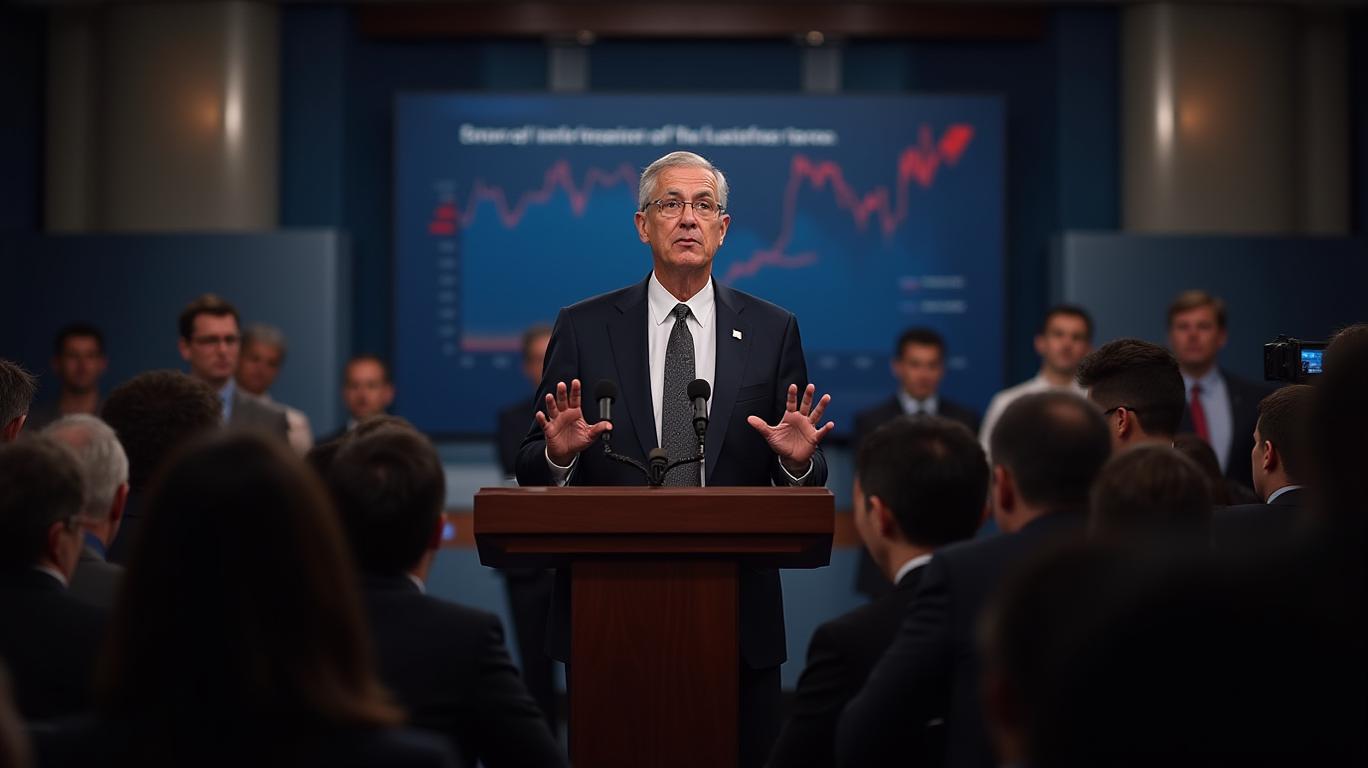Federal Reserve Worries About Stagflation Amid Tariff Threats
The Federal Reserve's recent minutes have highlighted growing concerns among policymakers about the potential for stagflation, a scenario where high inflation is coupled with weak economic growth. This worry is particularly pronounced in light of the impending tariffs announced by the Trump administration. The prospect of widespread tariffs could lead to increased prices for goods and services, while simultaneously weakening hiring and economic activity. This dual challenge could place the Federal Reserve in a precarious position, as it would need to balance the need to control inflation with the desire to support economic growth.
The tariffs, which are set to impact a broad range of industries, have already begun to affect certain sectors. Farmers, for instance, are feeling the immediate effects as nations cancel orders for US exports that were previously in the pipeline. This disruption in trade could further exacerbate the economic slowdown, as agricultural exports are a significant contributor to the US economy. The potential for a trade war with China, where tariffs could reach 100% or more, adds another layer of complexity to the situation. Such high tariffs would not only increase the cost of goods for consumers but also strain diplomatic relations between the two economic superpowers.
The economic boogeyman of stagflation looms large as prices skyrocket and job opportunities diminish. This scenario is particularly concerning for policymakers, who are already grappling with the challenges posed by the tariffs. The Federal Reserve's minutes indicate that there is a growing recognition of the need to address these issues proactively. However, the path forward is fraught with uncertainty, as any policy decision could have far-reaching consequences for the economy.
The tariffs are expected to have a significant impact on various industries, including the automotive sector. The threat of 100% tariffs on Chinese goods has raised concerns about the potential for a doubling in the price of certain products. This could lead to a decrease in consumer spending and further weaken economic growth. The situation is further complicated by the fact that the tariffs are not limited to specific industries but are set to apply to a wide range of goods, including computers and hard disks.
The economic landscape is fraught with uncertainty as the Federal Reserve grapples with the potential for stagflation in the face of impending tariffs. The situation is further complicated by the fact that the tariffs are set to impact a broad range of industries, leading to increased prices and weakened economic activity. The Federal Reserve's minutes indicate that policymakers are aware of the challenges ahead and are prepared to take proactive measures to address the situation. However, the path forward is fraught with uncertainty, as any policy decision could have far-reaching consequences for the economy.

Quickly understand the history and background of various well-known coins
Latest Articles
Stay ahead of the market.
Get curated U.S. market news, insights and key dates delivered to your inbox.



Comments
No comments yet